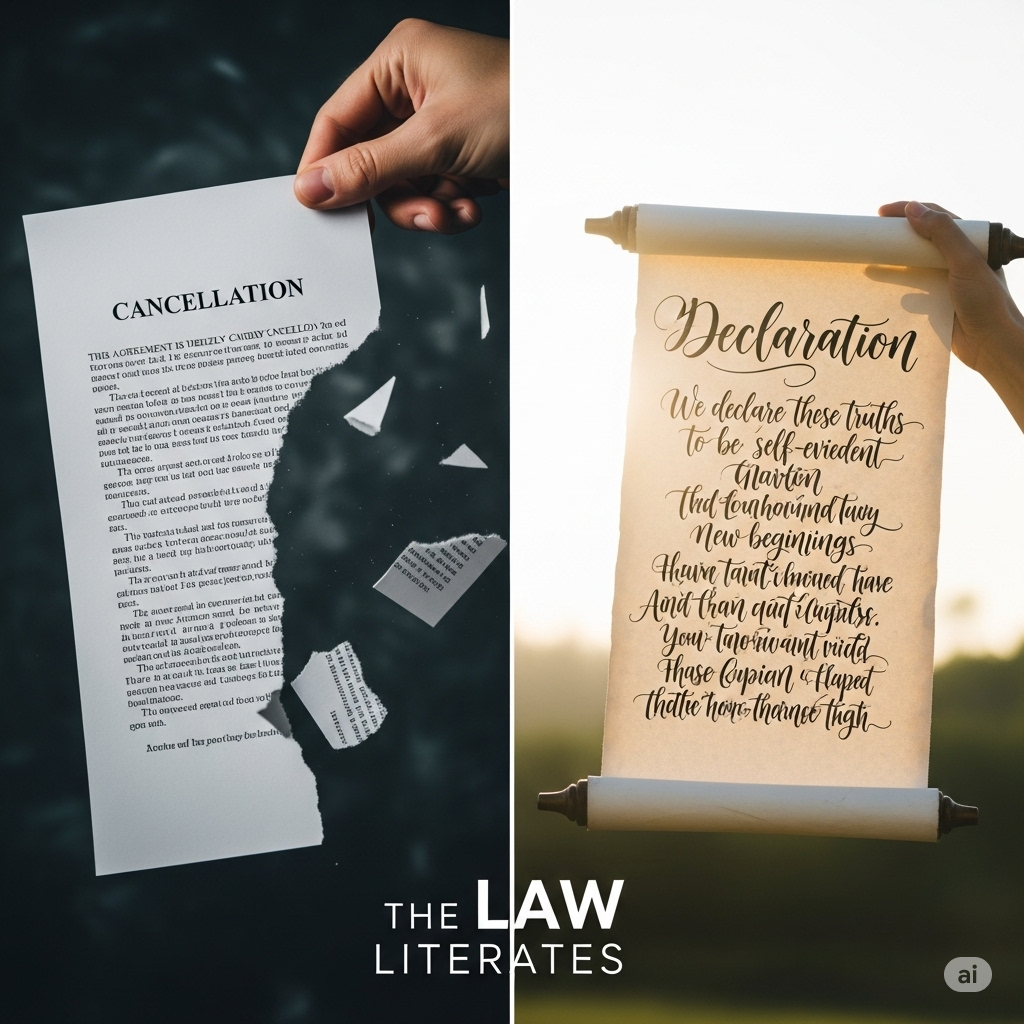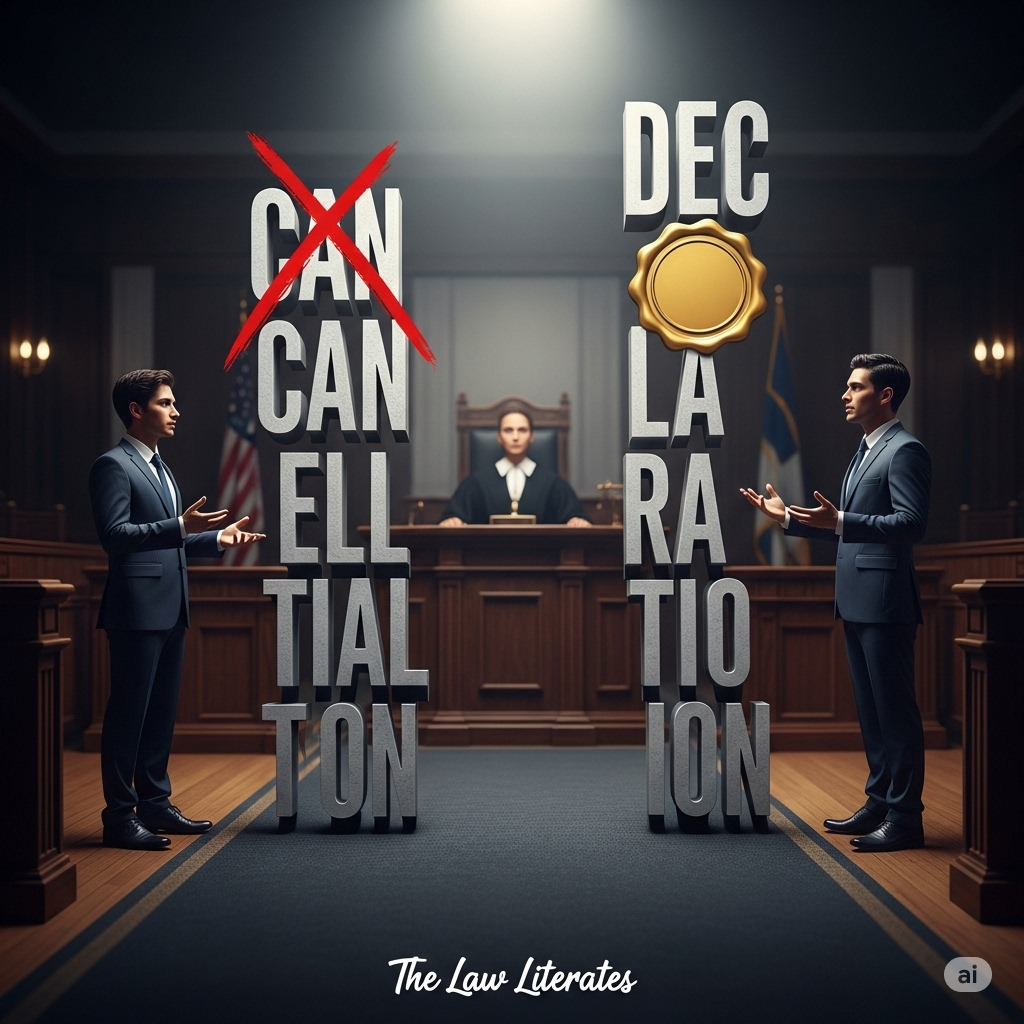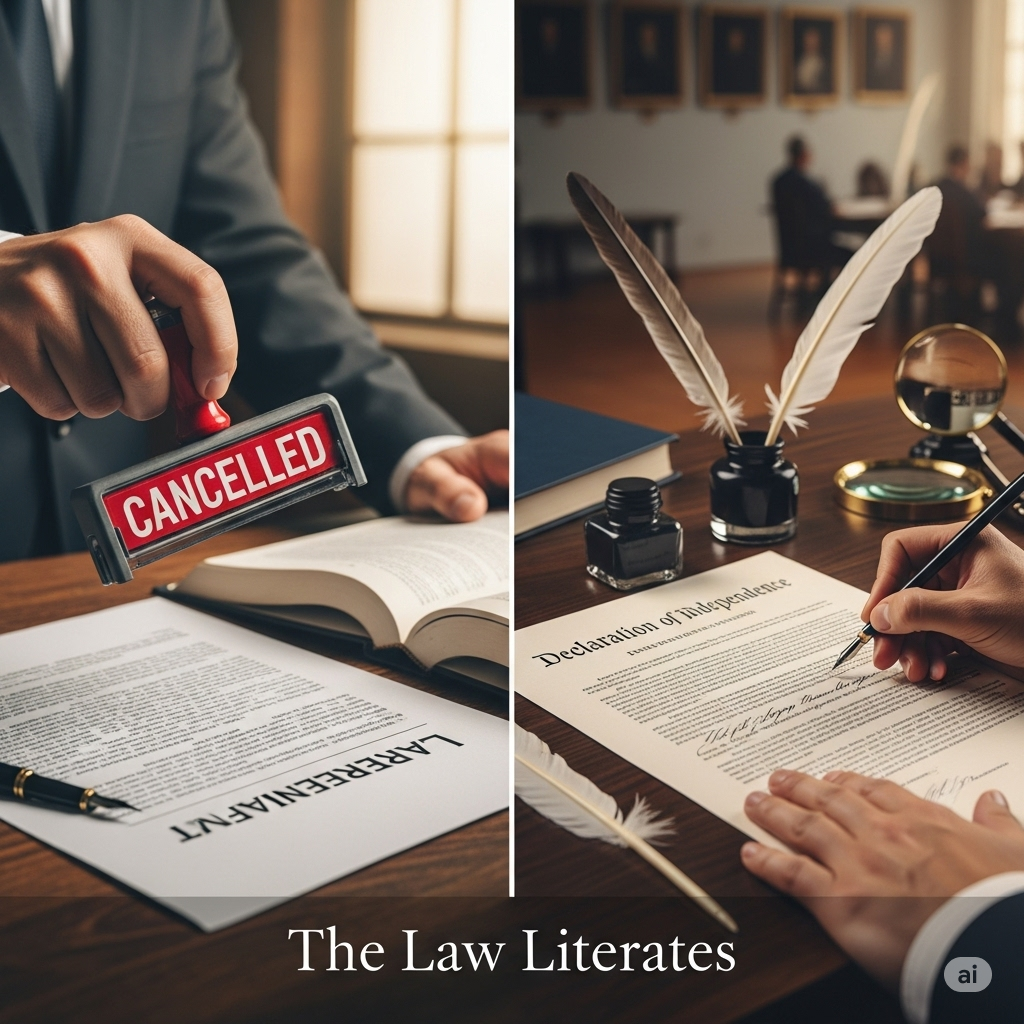Navigating Deed Challenges: Cancellation vs. Declaration Explained
Navigating Deed Challenges: Cancellation vs. Declaration Explained
When challenging a deed of transfer in court, precision in your legal approach is critical. A key decision every litigant faces is whether to seek cancellation of the deed or a declaration that it’s invalid, non-binding, or illegal. The choice hinges on one fundamental question: Are you the person who signed the deed (executant), or someone who didn’t (non-executant)?
This distinction shapes your legal strategy, determines court fees, and defines the relief you can seek. Drawing from key judicial pronouncements, including landmark Supreme Court rulings, this guide breaks down the differences, legal requirements, and practical implications to help you navigate these challenges effectively.
Understanding the Core Distinction: Executant vs. Non-Executant
The Supreme Court in the landmark case of Suhrid Singh @ Sardool Singh vs. Randhir Singh & Ors (2010) established a clear rule:- Executant: If you signed the deed, you must seek cancellation to annul it.
– Non-Executant: If you didn’t sign the deed, you can seek a declaration that it’s invalid, non-binding, or legally non-existent. While both remedies aim to nullify a deed’s effect, they differ significantly in legal process, court fees, and outcomes
Path 1: Cancellation for Executants (Section 31, Specific Relief Act, 1963) If you’re the person who executed (signed) the deed and now want to challenge it, your remedy is a suit for cancellation under Section 31 of the Specific Relief Act, 1963.
Why Cancellation?
1. Direct Involvement: As an executant, you’re a party to the deed, so you must formally cancel it to undo its legal effect as held in para 3 of the case of (Chellakannu, Son of Pichamuthu vs. Unknown (2005)).
2. Court Fees: You’ll typically pay an ad valorem court fee based on the deed’s stated consideration as held in the lanndmark case of (Suhrid Singh @ Sardool Singh vs. Randhir Singh & Ors (2010)
For example, in the case of Chellakannu, Son of Pichamuthu vs. Unknown (2005), the court required the plaintiff to pay fees under Tamil Nadu’s cancellation suit provisions (Section 40 of the Tamil Nadu Court Fees and Suits Valuation Act), even when the prayer was phrased as a declaration (paras 6, 7, 8, 16).
3. Nature of Action: Cancellation is an in personam action, binding only the parties involved, not the world at large as held in the case of (Deccan Paper Mills Co. Ltd. vs. Regency Mahavir Properties (2020), para 75).
When Can Cancellation Be Granted?
Courts grant cancellation under Section 31 if three conditions are met:
1. The deed is void or voidable against you.
2. There’s a reasonable apprehension of serious injury if the deed remains valid.
3. The court deems cancellation a proper form of preventive justice as held in the case of (Hussain Ahmed Choudhury vs. Habibur Rahman (Dead) Through Lrs (2025), paras 120, 122 and Deccan Paper Mills Co. Ltd. vs. Regency Mahavir Properties (2020), para 68).
Cancellation typically applies to deeds affecting your title, not those executed by unrelated parties as held in the case of (Deccan Paper Mills Co. Ltd. vs. Regency Mahavir Properties (2020), paras 69, 74; Hussain Ahmed Choudhury vs. Habibur Rahman (Dead) Through Lrs (2025), paras 120, 123).
Key Considerations
– Registrar’s Role: A registered deed cannot be unilaterally cancelled by the Registrar without a civil court’s declaration of fraud as held in the case of Vinod Shankar Jha @ Binod Shankar Jha vs. Unknown (2024), paras 249, 251). The Registrar’s authority under the Registration Act is limited to scrutiny before registration, not post-registration annulment (paras 229, 230).
– In Personam Nature: Cancellation doesn’t alter the deed’s status for non-parties as held in the case of Deccan Paper Mills Co. Ltd. vs. Regency Mahavir Properties (2020), paras 76-80).
Path 2: Declaration for Non-Executants (Section 34, Specific Relief Act, 1963)
If you didn’t sign the deed, you’re not obligated to seek its cancellation. Instead, you can pursue a declaration under Section 34 of the Specific Relief Act, 1963, to assert that the deed is invalid or non-binding on you.
Why Declaration?
1. No Direct Involvement: A deed executed by others doesn’t inherently affect your title, so you can treat it as legally non-existent (Hussain Ahmed Choudhury vs. Habibur Rahman (Dead) Through Lrs (2025), para 134).
2. Court Fees:
– If you’re in possession of the property, you may pay a fixed court fee for a declaration (Suhrid Singh @ Sardool Singh vs. Randhir Singh & Ors (2010), para 89).
– If you’re not in possession and seek possession as a consequential relief, an ad valorem fee applies under Section 7(iv)(c) of the Court-Fees Act, 1870 (Suhrid Singh @ Sardool Singh vs. Randhir Singh & Ors (2010), paras 89, 177).
3. Flexibility: Section 31’s use of “may” indicates cancellation isn’t mandatory for non-executants (Sk. Golam Lalchand vs. Nandu Lal Shaw @ Nand Lal Keshri @ Nandu (2024), para 163).
Legal Precedents
– Treating Deeds as Non-Existent: In Unni vs. Kunchi Amma (1890), cited in Hussain Ahmed Choudhury vs. Habibur Rahman (Dead) Through Lrs (2025) (para 134), courts held that non-executants can ignore a deed and sue for their rights as if it doesn’t exist.
– Prima Facie Void Deeds: In Bijoy Gopal Mukerji vs. Krishna Mahishi Debi (1907), cited in Hussain Ahmed Choudhury vs. Habibur Rahman (Dead) Through Lrs (2025) (paras 136, 137), the Privy Council noted that non-executants can treat voidable deeds as nullities without court intervention.
– No Need for Cancellation: In Vellayya Konar (Died) & Anr. vs. Ramaswami Konar & Anr. (1939), cited in Hussain Ahmed Choudhury vs. Habibur Rahman (Dead) Through Lrs (2025) (para 138), the court clarified that non-executants facing a deed between third parties need only seek a declaration that it’s invalid as to them, not full cancellation.
– Title Declaration: A declaration of title can be as effective as cancellation (Hussain Ahmed Choudhury vs. Habibur Rahman (Dead) Through Lrs (2025), para 141). The Supreme Court overturned a High Court’s dismissal of a non-executant’s suit for failing to seek cancellation when a valid Gift Deed supported their title (paras 105, 141, 148).
Section 34 and Further Relief
Under Section 34, you can seek a declaration of your legal rights or property title. If further relief (e.g., possession) is necessary, you must request it to make the declaration effective (Hussain Ahmed Choudhury vs. Habibur Rahman (Dead) Through Lrs (2025), paras 129-132). Like cancellation, declaratory suits are in personam(Deccan Paper Mills Co. Ltd. vs. Regency Mahavir Properties (2020), paras 87, 88).

Practical Implications: Choosing the Right Path
The distinction between cancellation and declaration isn’t just academic, it has real-world consequences:
1. For Executants (Cancellation):
– File under Section 31 for deeds you signed.
– Pay ad valorem court fees based on the deed’s value.
– Prove the deed is void/voidable and poses a serious threat.
– Outcome is in personam, binding only involved parties.
2. For Non-Executants (Declaration):
– File under Section 34 for deeds you didn’t sign.
– Pay fixed fees (if in possession) or ad valorem fees (if seeking possession).
– Treat the deed as non-existent or seek a declaration of title.
– Outcome is in personam, protecting your rights without cancelling the deed entirely.
Conclusion
Challenging a deed of transfer requires careful consideration of your role as an executant or non-executant. By understanding the legal nuances of cancellation (Section 31) versus declaration (Section 34), you can craft a precise and cost-effective legal strategy. Backed by clear judicial guidance from India’s apex courts, this distinction empowers litigants to navigate deed challenges with confidence.
Written By: Ranvir Singh Law Student VIPS
all rights reserved (adv Vaibhav Tomar)


